We kindly inform you that, as long as the subject affiliation of our 300.000+ articles is in progress, you might get unsufficient or no results on your third level or second level search. In this case, please broaden your search criteria.
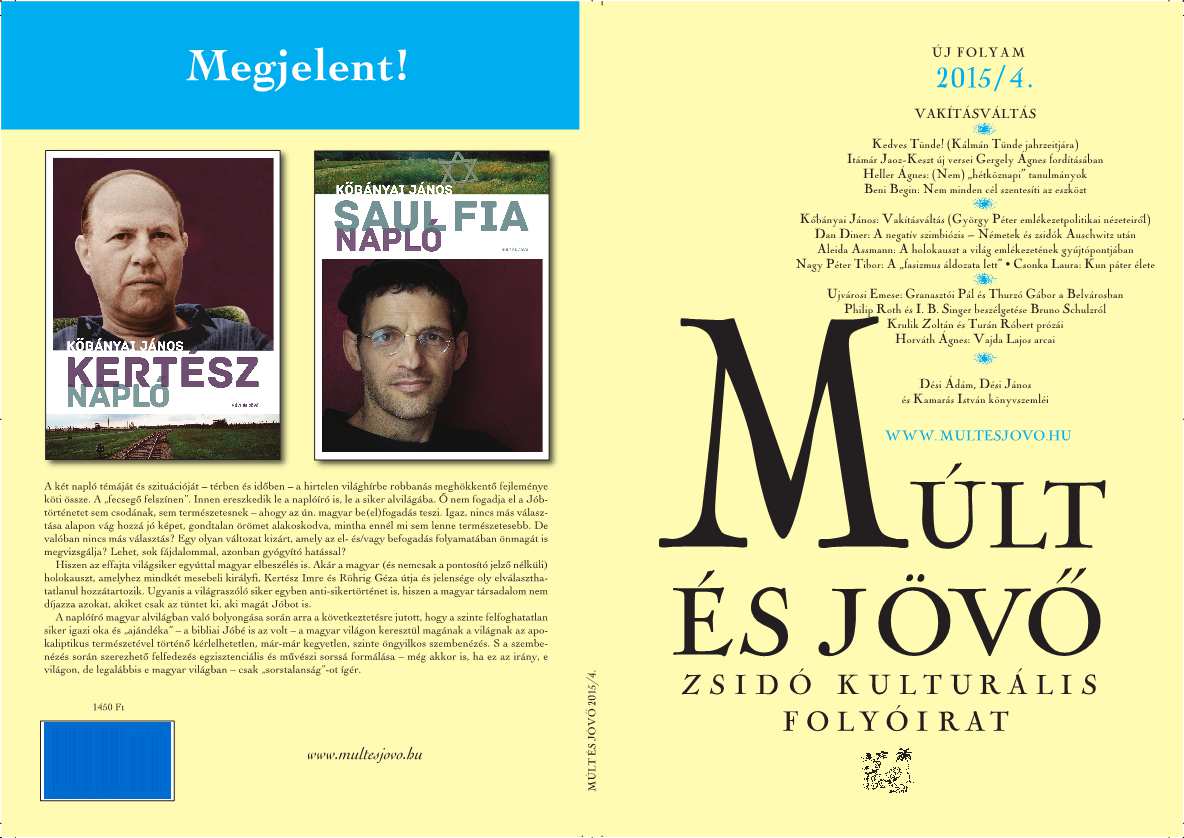
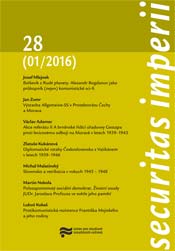
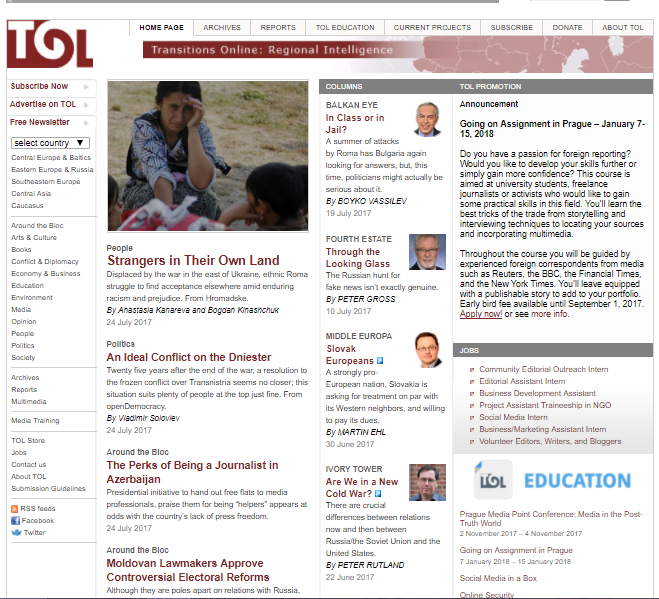
Man who found the bomb and took it home instead of alerting authorities could face public nuisance charges.
More...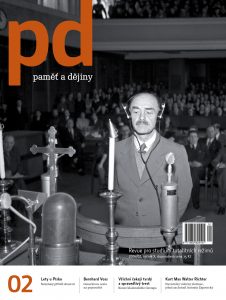
The Růt family belonged among the “harbourers” of the Anthropoid parachute unit. In the first week of January 1942 they provided the newly arrived paratroopers with accommodation in their flat. The importance of the Růt family lies in their ability not to expose anything for five and a half months despite the pressure imposed by the occupation forces. They did not lose their nerve after the first round of arrests in Biskupcova Street and stayed put.
More...
The study is dedicated to the fate of a former member of the Gestapo office in Jičín, Criminal Secretary and SS- Sturmscharführer Kurt Max Walter Richter. He arrested dozens of Czech patriots, of which many were executed by the occupants or died in concentration camps. He was notorious for his brutality also among his colleagues.
More...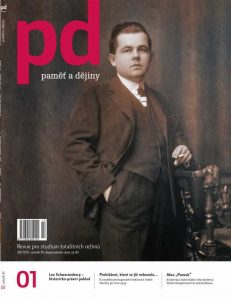
Author in this study analyses the Cultural and artistic activities in the KZ Ravensbrück.
More...
The period of Nazi occupation is mainly connected with the heroism of members of domestic and foreign resistance.More less often recalls the dark side of the protectorate years, which was the conscious collaboration with the enemy. But the collaboration had many forms and a wide range of motivations.
More...
On the twenty-seventh of May 1942, the history of European anti-Nazi resistance was marked indelibly as the day when an attack on Reinhard Heydrich was carried out in Prague. In connection with the subsequent investigation of the assassination, the name of his chief investigator, Heinz Pannwitz, a member of the Prague Gestapo, is now widely known. His character appeared in the last film processing of this event.
More...
The Smrz family had a significant impact on the fate of the Anthropoid parachutists. She was among their first supporters. Although all three siblings of Jaroslav Smrže were finally involved in this support, only Jaroslav and his sister Emanuela, married to Khodlová, and their closest ones were carrying the results of the action. They took all the blame that the Gestapo had shown them and paid for the highest price.
More...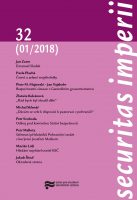
The author reconstructs the life story of SS-Oberführer Emanuel Sladek (1902–1947), the third highest-ranking Czech German in the SS hierarchy, who was sentenced to death and executed following WWII. The paper begins with a description of Sladek’s family and professional background and an outline of his politics. From his youth Sladek had been involved in various German nationalist organisations in the Jihlava district, assuming leading positions in several of them, and at the turn of the 1930s actively worked toward the breakup of the Czechoslovak Republic. Following the creation of the Protectorate of Bohemia and Moravia his “service” was rewarded by acceptance into the SS and he was put in charge of the Jihlava 107th SS-Standarte. It was part of the Allgemeine-SS, by far the largest the SS organisation prior to the outbreak of the war. The paper outlines the tasks and activities that Sladek carried out as a senior representative of the Allgemeine-SS in the Protectorate. These ultimately faded markedly as the ambitious Sladek attempted to join the Waffen-SS, which rejected him for a variety of reasons. In conclusion there is a brief description of his trial.
More...
The author of the paper focuses her attention on so-called asocial and criminal prisoners deported from the Protectorate of Bohemia and Moravia to the Ravensbrück women’s concentration camp. The first part explains the ideological bases and practical steps that led in the Third Reich, with some legal modifications, to the gradual systematic internment and subsequent deportation of so-called asocial individuals and habitual criminals to concentration camps. In view of the feminine theme of the study, a separate chapter is devoted to the persecution of prostitutes. The second part focuses on the everyday lives of the groups of prisoners in question in Ravensbrück, their standing in prison society and their depiction in the memoirs of fellow internees. The conclusion delivers short explorations of the lives of a number of women that highlights the real practice of the authorities’ treatment of these social groups on the territory of the Protectorate of Bohemia and Moravia.
More...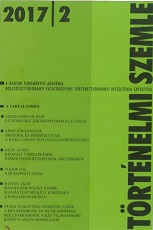
Review of: Váltóállítás. Diktatúrák a vidéki Magyarországon 1945-ben. Szerkesztette: Csikós Gábor, Kiss Réka, Ö. Kovács József. MTA Bölcsészettudományi Kutatóközpont – Nemzeti Emlékezet Bizottsága, Budapest, 2017. (Magyar vidék a 20. században 1.) 780 o. Overthrow. Dictatorship in Rural Hungary in 1945. Edited by Gábor Csikós, Réka Kiss, Ö. Joseph Smith. MTA Humanities Research Center - National Commemorative Committee, Budapest, 2017 (Hungarian area in the 20th century 1st) p.
More...
The so-called gypsy camp in Lety, near Pisek, officially existed from 1 August 1942 to 8 August 1943. It had three chief commanders, who exerted a more or less fundamental influenced over life in the camp and the fates of the internees.
More...
This paper is an overvoew of the Organisational Chart of the Gestapo.
More...
On Friday 13 February 1942, eleven Czech were murdered at the Mauthausen concentration camp, all of them close collaborators of the leaders of the home resistance, squadron leader RNDr. Josef Jedlicka and doc. Vladimir Krajina who, in 1939–1941, provided an agency radio link with Moscow and London. It was the very first mass execution of Czechs in Mauthausen. The victims also included the novelist Otakar Batlicka. The readers of his stories sought in vain answers to many questions.
More...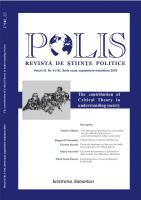
Review of: ---------------------- Carmen Escu Müller, Evaluări ale opiniei publice româneşti asupra fascismului italian (1922-1943), Editura Argonaut, Cluj Napoca, 2016, p. 414.
More...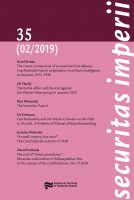
On 14 September 1938, a rebellion of the local German population against the Czechoslovak state power, now known as the Verneřice Putsch, broke out in the north Bohemian town of Verneřice. Around 9 p.m., Konrad Henlein’s followers sounded the church bells and a fire alarm that served as a signal to launch the attack. Within a few minutes, almost all male residents of the town gathered in the Verneřice square and, using their help, the gendarmerie station, the post office, the railway station and the German Social Democrats’ co-operative were occupied, and the Czech civil servants were imprisoned at the town hall, from where all were to be taken to Germany. This plan failed only thanks to the courage of two German Social Democrats, Josef Gaube and Oscar Schröfel, who managed to ride a bicycle for help in Těchlovice, 10 kilometres away. Despite the rapid reaction of the Czechoslovak army, the gendarmerie and the police, the main participants of the putsch managed to escape through Děčín to Germany, joining the Sudetendeutsches Freikorps. The Czechoslovak justice was not given the opportunity to punish them until after the end of the Second World War, when some of the culprits were arrested and brought before the Extraordinary People’s Court in Litoměřice.
More...
The study presents and analyses the period of the Second Czechoslovak Republic, contradictory and neglected by both Czech and European historiography. For Czech society, the Munich Agreement was a shock. What people have believed for twenty years and what they worked for self-sacrificingly was suddenly in ruins and questioned. For Masaryk’s republic, it was an economic, political, social and moral catastrophe. Weakened Czecho-Slovakia was in a difficult, desperate, even tragic situation. The belief in democracy was shaken, and the trust in the West was undermined. After its territorial losses, Czecho-Slovakia was left at the mercy of Hitler’s Germany. In a turbulent atmosphere, people looked for someone to blame. Attention is focused on the Sudetengau, which originated from the ceded borderlands, on the transformation of the relationship between the Czechs and the Slovaks, on the situation in Carpathian Ruthenia, as well as on considerable economic and social difficulties. At the forefront of interest is also the transformation of the political system, the operation and role of Syrový and Beran’s government, the election of President Hácha and the creation of authoritative democracy. A sad reality of that time is the awaken anti-Semitism that affected overall civil society, including elite professions. The Jews and Roma became second category citizens. The question remains to what extent Czecho-Slovakia only bowed to Berlin’s pressure, which intensified and strengthened, and to what extent it introduced its antidemocratic demands by itself. At the end of the fateful year 1938, the country lived in the shadow of the Nazi threat.
More...